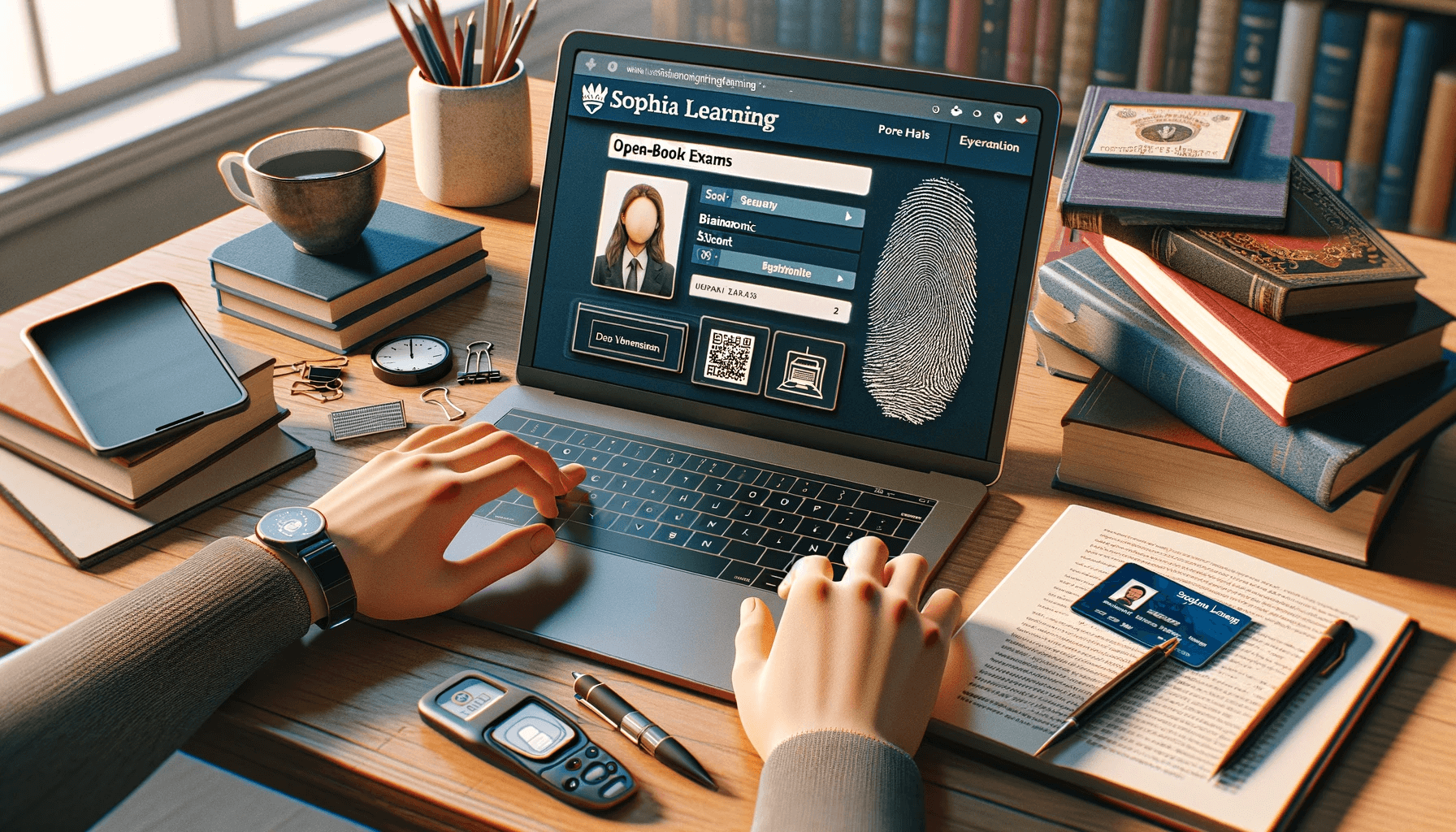In today’s rapidly evolving educational landscape, online learning platforms like Sophia Learning have become increasingly popular, offering a convenient and flexible way to acquire knowledge.
However, this rise in digital education brings with it pertinent questions about academic integrity.
A question that often surfaces in discussions about online learning is the ability of these platforms to detect cheating.
In this article, we delve into the mechanisms and policies that Sophia Learning employs to maintain the sanctity of honest learning.
We invite you to join us on this exploratory journey as we unravel whether Sophia Learning can effectively detect and deter cheating.
Stay with us as we dissect this topic, providing insights and comprehensive analysis, without revealing the answer too soon.
Is Sophia Learning Able To Detect Cheating?
Sophia Learning employs innovative techniques to detect cheating, but it does not offer proctored exams for its final assessments.
Instead, the platform’s approach to maintaining academic integrity is multifaceted and adaptive.
Recognizing the modern educational landscape, Sophia’s final exams are open-book, allowing a realistic and practical assessment environment.
A key element in Sophia’s strategy to prevent cheating is its use of biometric technology.
This sophisticated system verifies students’ identities through their unique typing patterns, ensuring that the person taking the course is the same individual completing the assessments.
Additionally, photo ID verification is sometimes required, adding another layer of identity confirmation.
Furthermore, plagiarism detection tools are an integral part of Sophia Learning’s arsenal against academic dishonesty.
These tools effectively identify instances of plagiarism by comparing student submissions against a comprehensive database of existing materials, emphasizing the importance of originality in student work.
However, it’s important to note that despite these advanced methods, some external service providers have developed clever ways to bypass Sophia’s security measures.
This ongoing challenge underscores the need for continual enhancements in cheating detection methods, ensuring that the integrity and value of online education are upheld.
In summary, while Sophia Learning has implemented several effective strategies to deter cheating, the evolving nature of online education means that these methods must continually adapt to new challenges.
Does Sophia Learning Check Ip Address?
Sophia Learning does not explicitly state that they monitor IP addresses as part of their strategy to detect cheating.
The platform focuses more on biometric and identity verification methods rather than tracking the geographical locations of its users.
This approach aligns with their emphasis on creating a flexible and accessible learning environment while maintaining academic integrity.
The primary methods employed by Sophia Learning for ensuring honesty include biometric technology, which verifies a student’s identity through their unique typing patterns, and photo ID verification.
These measures are designed to confirm that the individual enrolled in the course is the same person completing the assessments and assignments.
Additionally, Sophia Learning utilizes advanced plagiarism detection tools. These tools are crucial for identifying copied or unoriginal content in student submissions, fostering a culture of originality and ethical academic practices.
This method is particularly effective in an open-book exam setting, where the temptation to plagiarize can be higher.
While monitoring IP addresses is a common practice in some online learning platforms to prevent location-based fraud, Sophia Learning appears to prioritize user privacy in this regard.
Their approach suggests a balance between ensuring academic honesty and respecting the privacy of their learners.
It’s important for students to understand that while IP tracking might not be a part of Sophia Learning’s cheating detection arsenal, the platform still has robust measures in place.
These measures are constantly evolving to counteract new cheating strategies, ensuring that the integrity of the learning experience is maintained.
Does Sophia Learning use camera?
Sophia Learning does not routinely use camera surveillance as part of its standard assessment procedures.
Unlike many online learning platforms that require webcam monitoring for proctoring exams, Sophia Learning opts for a different approach to maintain academic integrity.
This decision aligns with Sophia’s educational philosophy, which emphasizes trust and responsibility in its learners while providing a flexible and accessible learning environment.
By not mandating webcam use, Sophia Learning caters to a wider audience, including those who may not have constant access to camera-equipped devices or who prefer a degree of privacy while studying.
This approach, however, places a greater emphasis on the responsibility of the students to adhere to the principles of academic honesty without the constant oversight of a camera.
Conclusion
In conclusion, Sophia Learning adopts a unique approach to uphold academic integrity in its online courses.
While it does not use proctoring services, webcam monitoring, or IP address tracking, Sophia Learning effectively employs biometric technology and photo ID verification to ensure that students maintain honesty.
Additionally, plagiarism detection tools play a crucial role in preserving the originality of student work. This blend of strategies reflects Sophia Learning’s commitment to creating a flexible, accessible, and trust-based educational environment.
As online education continues to evolve, Sophia’s methods highlight an innovative balance between academic integrity and user privacy, setting a standard for other platforms in the digital learning space.
